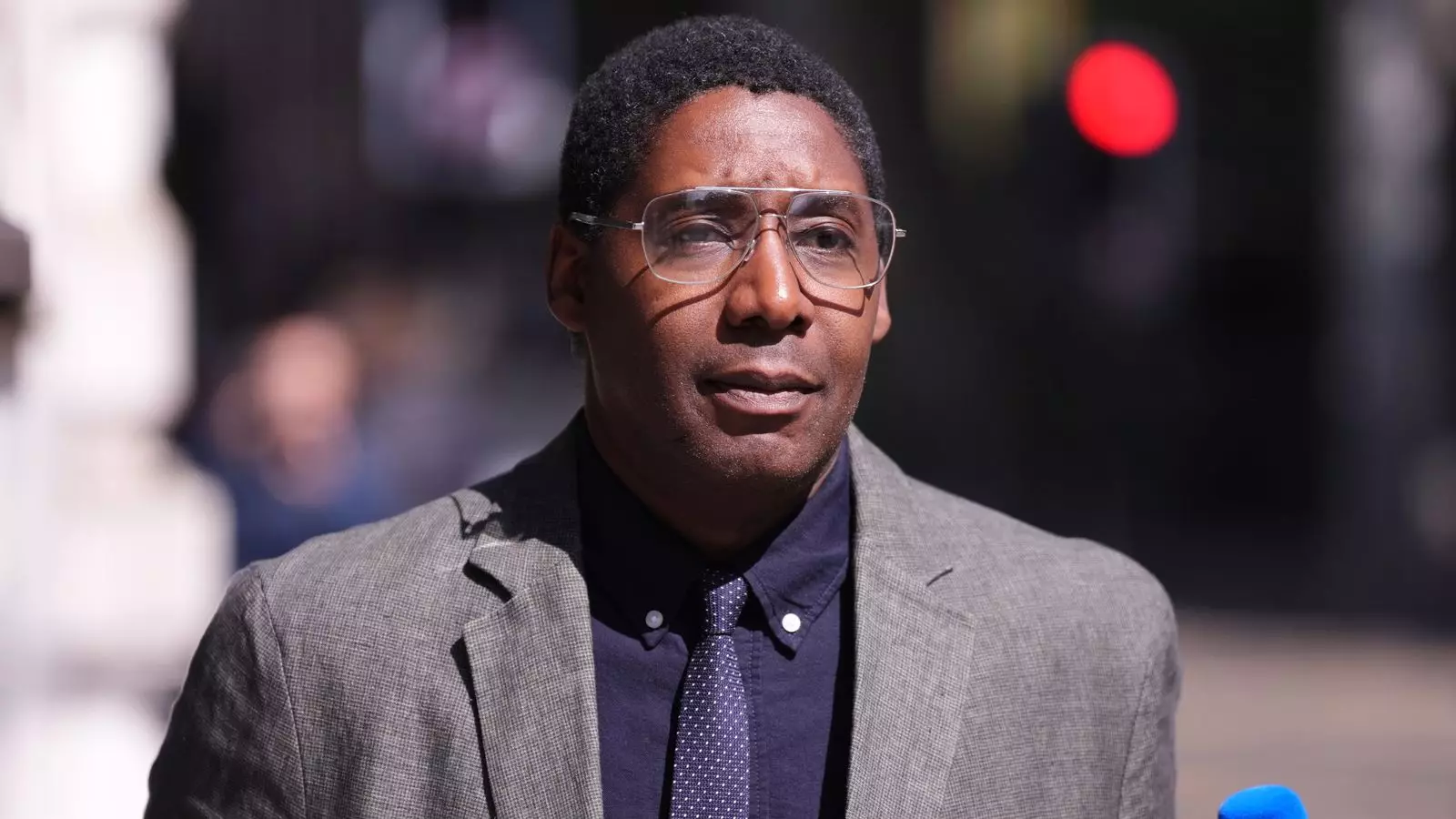In a shocking turn of events that ripples through the seemingly genteel world of art dealing, Oghenochuko Ojiri, a familiar face from TV shows like Bargain Hunt and Antiques Road Trip, has been sentenced to two and a half years in prison for a grave failure to report suspected criminal activity in his business dealings. The scandal revolves around his sales of approximately £140,000 worth of artwork to Nazem Ahmad, an individual identified by prosecutors as a financier for Hezbollah, a group labeled as a terrorist organization in the UK. This case is a stark reminder that behind the prestige of galleries and fancy auctions lies a murky underbelly where money often trumps morality.
The events unfolded between October 2020 and December 2021, during which Ojiri knowingly engaged in transactions that, rather than enriching cultural appreciation, compounded the financing of terror. Faced with the evidence, which clearly outlined his awareness of Ahmad’s unsavory background, Ojiri’s actions seem not just misguided, but also deeply cynical. His decision to prioritize financial gain over ethical considerations raises alarming questions about the integrity of the art market and its players.
Pursuing Profits Over Principles
What is perhaps most troubling in this saga is the cavalier attitude exhibited by Ojiri as he operated under a business model that disregarded moral responsibility. Despite being aware of Ahmad’s alleged connections to Hezbollah—specifically after Ahmad faced sanctions in the US—Ojiri chose to ignore the ramifications of his actions. In a disheartening twist, he even communicated reluctance to sell directly to Ahmad, indicating a consciousness of risk. Yet, he acted contrary to this sentiment when profitability beckoned. This duality—a desire to maintain a pristine public image while engaging in ethically dubious transactions—screams of hypocrisy.
Mrs. Justice Cheema-Grubb’s sentencing comments poignantly encapsulate the broader implications of Ojiri’s actions, calling them a “shameful fall from grace for a public personality.” The judge emphasized not only Ojiri’s lapses in judgment but also the potential influence of his actions on young people within the arts community, particularly from ethnic minorities. He was placed on a pedestal as a role model, and instead of leveraging that position to promote ethical practices, he chose profit as his guiding star. It is a sobering moment for those inspired to enter the arts: the realization that success can be profoundly corrupted by choices lacking integrity.
A Stark Warning for the Arts Community
The sentencing of Ojiri is far more than an individual disgrace; it represents a crucial juncture for the entire art market. The complexities of transaction and provenance in the art world must now face scrutiny, and Ojiri’s case serves as a much-needed warning to art dealers everywhere. As the head of the Metropolitan Police’s counter-terrorism command stated, this prosecution sets a precedent. If prominent figures are willing to look the other way for financial gain, what does that say for the ethical standards in an industry celebrated for its cultural contributions?
As art continues to gain value, it has become a vehicle not only for admiration but also for criminal endeavors—a phenomenon that demands immediate attention and regulation. The art world must reckon with its vulnerabilities; it cannot afford to be complacent in the face of unethical dealings under the guise of aesthetic appreciation. With the likes of Ojiri at its helm, how many others may be lurking in the shadows, compromising public trust for private gain?
The chasm between morality and profitability in the art realm has widened alarmingly. It is imperative that industry insiders, collectors, and enthusiasts alike push for systemic changes that promote transparency, accountability, and ethical conduct. If the art market is to avoid being tainted by associations with unsavory characters, it requires a collective commitment to uphold and reinforce integrity as a core value. The chilling reality of Oghenochuko Ojiri’s case should resonate far beyond the courtroom; it must inspire a revolution in moral stewardship within the art community.

Leave a Reply